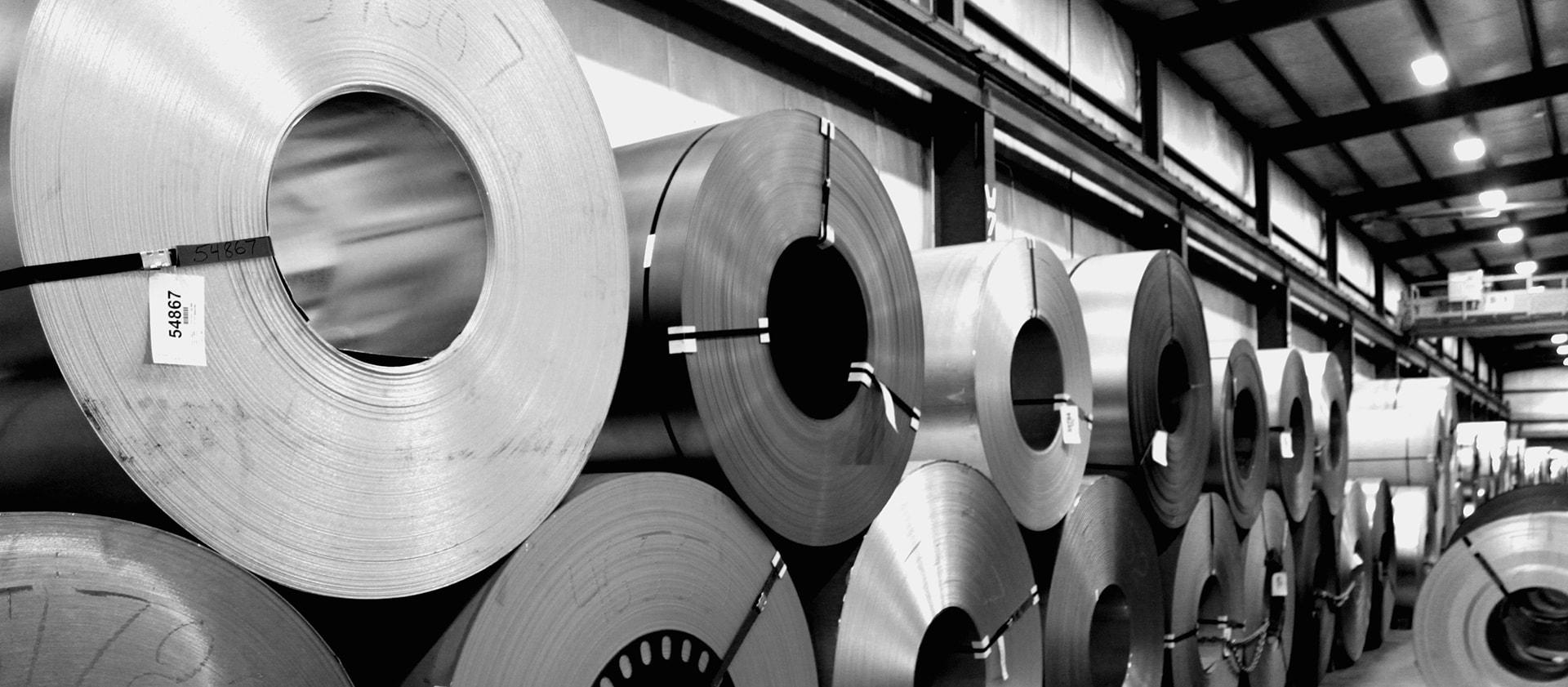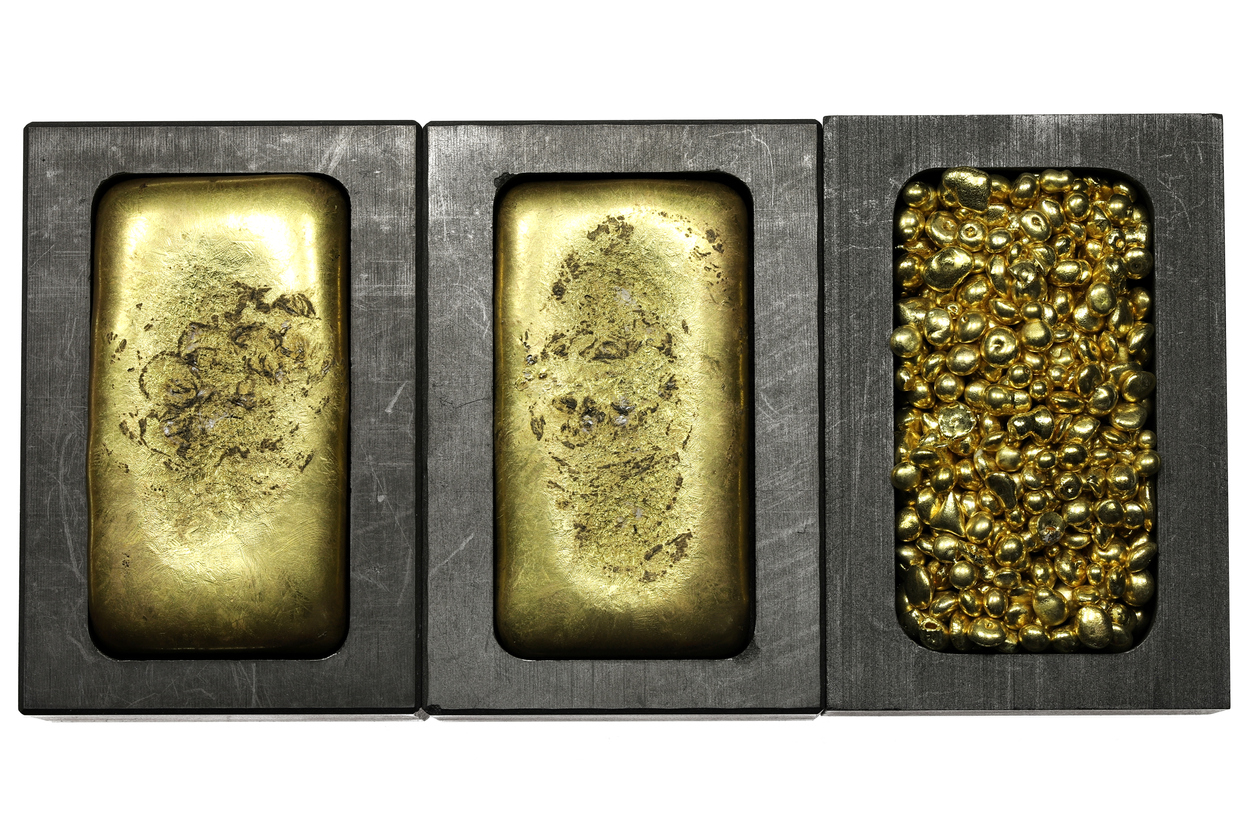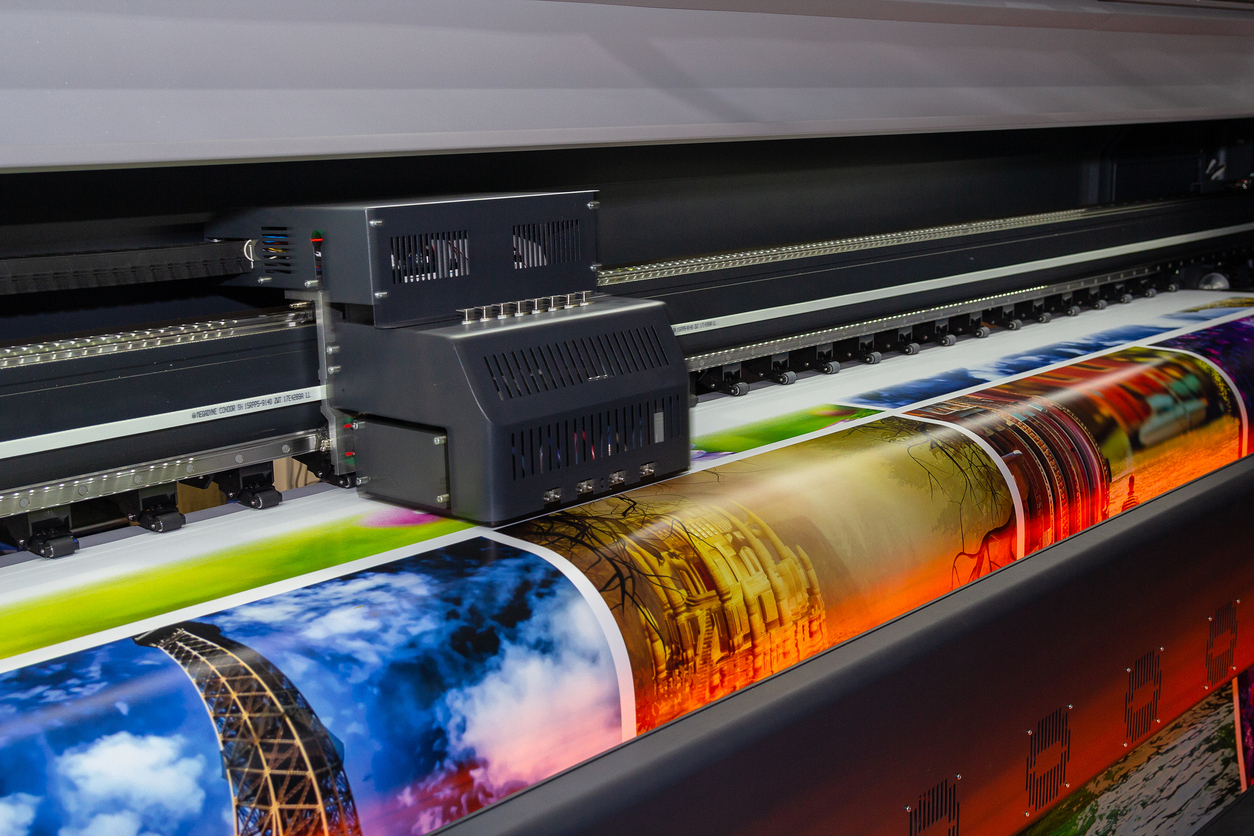The Future of Fabrication: Exploring the Advantages of Cold Folding with Wigmore Trading in Nigeria
The Future of Fabrication: Exploring the Advantages of Cold Folding with Wigmore Trading in Nigeria
Are you ready to take your fabrication process to the next level? Look no further than cold folding with Wigmore Trading in Nigeria! In this blog post, we’ll explore the cutting-edge advantages of this innovative technique and how it can revolutionize your manufacturing capabilities. Say goodbye to traditional methods and hello to a brighter, more efficient future with cold folding. Let’s dive in!
Introduction to Cold Folding and Its Application in Fabrication
Introduction to Cold Folding and Its Application in Fabrication
Cold folding, also known as cold forming or cold rolling, is a metal fabrication process that involves bending and shaping metal sheets and plates without the use of heat. This technique has been used for centuries, with evidence dating back to ancient civilizations such as the Egyptians and Romans. However, with advancements in technology and equipment, cold folding has become an integral part of modern-day fabrication processes.
The traditional method of hot rolling involves heating metal sheets at high temperatures to make them malleable enough for shaping. This process not only consumes a significant amount of energy but also leads to material loss due to oxidation. On the other hand, cold folding eliminates these drawbacks by utilizing pressure instead of heat.
The process of cold folding involves placing a flat sheet or plate between two rollers and applying pressure until it takes on the desired shape. The rollers are designed with specific profiles that determine the final shape of the folded metal. These profiles can vary from simple curves to more complex shapes such as corrugations or flanges.
One of the main advantages of cold folding is its ability to produce high-quality finished products with precise dimensions and consistent thickness. As there is no heat involved in this process, there is minimal risk of distortion or warping, resulting in uniformity throughout the entire production batch.
Moreover, since no heat is used during cold folding, there is no need for any cooling time after shaping. This means that production can be done at a faster pace compared to hot rolling methods, resulting in higher output rates and increased efficiency.
Another significant advantage of cold folding is its versatility in working with different types of metals such as steel, aluminum, copper, and alloys. This makes it ideal for various industries such as construction, automotive manufacturing, aerospace engineering, and more.
In fabrication processes where precision plays a critical role – like building aircraft components or medical devices – cold folding offers unparalleled accuracy due to its controlled shaping capabilities. This ensures that the final product meets all required specifications and standards.
Cold folding has revolutionized the fabrication industry by offering numerous advantages over traditional hot rolling methods. With its ability to produce high-quality finished products with precision and efficiency, it is no surprise that this technique is gaining popularity in Nigeria’s manufacturing sector. In the next section, we will delve deeper into how Wigmore Trading is utilizing cold folding to meet the growing demand for superior quality metal products in Nigeria.
The History of Cold Folding in Nigeria
The practice of cold folding in Nigeria has a long and rich history that dates back centuries. This traditional method of metalworking involves shaping and bending sheets of metal without the use of heat, using specialized tools and techniques. It is a highly skilled craft that has been passed down through generations, and continues to be an important aspect of fabrication in Nigeria.
The origins of cold folding can be traced back to ancient civilizations such as the Egyptians, who used it for making jewelry and decorative objects. In Nigeria, it was primarily used by blacksmiths for making household items like pots, pans, and utensils. The technique was also employed in creating roofing materials such as corrugated iron sheets.
However, it wasn’t until the 20th century that cold folding became more widespread in Nigeria. With the arrival of industrialization and modern machinery, this traditional method evolved into a more efficient and advanced process. It gained popularity among fabricators due to its numerous advantages over traditional hot forging methods.
One major advantage is cost-effectiveness. Cold folding requires less energy compared to hot forming methods since no heat is needed. This translates to lower production costs which make it an attractive option for small businesses with limited budgets.
Another significant advantage is its versatility. Cold folding allows fabricators to work with a wide range of materials including steel, stainless steel, aluminum, copper, and brass among others. This makes it suitable for various industries such as construction, automotive manufacturing, aerospace engineering and even jewelry making.
Cold folding also produces high-quality results with precise measurements and smooth finishes which are crucial in modern-day fabrication processes where accuracy is paramount.
Additionally, this technique offers greater flexibility as the metal can be easily manipulated during the process without compromising its properties or structural integrity. This makes it ideal for creating complex shapes that would otherwise be difficult or impossible with hot forming methods.
Today, cold folding remains an essential part of Nigerian culture while also being at the forefront of modern fabrication techniques. With the advancements in technology and machinery, it has become an increasingly efficient and sophisticated process that continues to evolve with time.
The history of cold folding in Nigeria is a testament to its enduring significance and vital role in the country’s fabrication industry. As we look towards the future, it is clear that this traditional method will continue to thrive and adapt to meet the ever-changing demands of modern-day manufacturing.
Advantages of Cold Folding with Wigmore Trading
Cold folding, also known as cold bending or press brake forming, is a metalworking process that involves shaping and bending metal sheets into different angles and curves without the use of heat. This innovative technique has gained popularity in recent years due to its numerous advantages over traditional hot rolling methods. Wigmore Trading, one of Nigeria’s leading fabrication companies, has been at the forefront of implementing cold folding technology in their operations. In this section, we will explore the specific advantages of cold folding with Wigmore Trading.
1. Greater Precision and Consistency
One of the main advantages of using cold folding with Wigmore Trading is the high level of precision and consistency it offers. Unlike hot rolling, which can result in unpredictable deformations due to temperature variations, cold folding ensures precise and consistent bends every time. This is crucial for industries such as construction and automotive, where accuracy is key to ensuring structural integrity and safety.
2. Cost-Effective
Using cold folding technology can significantly reduce production costs for both small-scale and large-scale projects. As no heat is involved in the process, there is no need for expensive heating equipment or energy consumption costs. Additionally, because there is minimal material wastage during cold folding compared to hot rolling techniques, companies like Wigmore Trading can save money on raw materials.
3. Versatility
Another significant advantage of cold folding with Wigmore Trading is its versatility in terms of materials that can be used. While hot rolling methods are limited to certain types of metals such as steel or aluminum alloys, cold folding allows for a wider range including copper, brass, and even stainless steel sheets. This makes it an ideal option for fabricating various products across different industries.
4. Improved Structural Strength
The use of heat during traditional fabrication methods can often weaken the structural integrity of metals by altering their microstructure and grain orientation. Cold bending eliminates this risk as it does not involve any changes in temperature but instead relies on the plasticity of metal. This results in a stronger and more durable end product.
5. Faster Turnaround Time
With the precision, consistency, and versatility that cold folding offers, projects can be completed much faster than with traditional methods. Wigmore Trading’s state-of-the-art press brake machines can produce multiple bends at once, significantly reducing production time. This not only increases efficiency but also allows for quicker project completion and delivery to clients.
Cold folding with Wigmore Trading provides numerous advantages over traditional hot rolling methods in terms of precision, cost-effectiveness, versatility, structural strength, and speed. As this technique continues to gain popularity in the fabrication industry in Nigeria and beyond, Wigmore Trading remains committed to staying at the forefront of innovative technology to meet their clients’ needs efficiently and effectively.
– Cost-effectiveness
Cost-effectiveness is a crucial factor in any manufacturing process, and the future of fabrication lies in finding innovative and efficient ways to produce high-quality products at a lower cost. This is where cold folding with Wigmore Trading in Nigeria comes into play.
Cold folding, also known as cold forming or cold rolling, is a metal fabrication technique that involves shaping metal sheets or coils at ambient temperatures. This method offers several advantages over traditional hot forming techniques and has become increasingly popular in recent years due to its unmatched cost-effectiveness.
One of the primary reasons for the cost-effectiveness of cold folding is its energy efficiency. Unlike hot forming processes that require extensive heating and cooling cycles, cold folding only requires minimal energy inputs. This results in significant savings on electricity costs, making it an attractive option for businesses looking to reduce their operating expenses.
Moreover, since this method does not involve any heat, there are no material losses due to oxidation or scaling, which can occur during hot forming processes. This means that manufacturers using cold folding with Wigmore Trading can achieve higher yields and minimize raw material wastage, leading to further cost savings.
Another advantage of cold folding is its faster production time compared to traditional methods. Since there is no need for lengthy heating and cooling cycles, products can be manufactured at a much faster rate. This translates into increased productivity and shorter lead times for customers – both essential factors in today’s competitive market.
The versatility of cold folding also contributes significantly to its cost-effectiveness. It can be used on various materials such as steel, aluminum, copper, and even plastic sheets or coils with minimal setup changes. This eliminates the need for multiple machines or tools for different materials – another way in which manufacturers can save costs.
Furthermore, thanks to advancements in technology and machinery used for cold folding, precision and accuracy have greatly improved. With precise dimensions being achieved effortlessly through computer-controlled systems, there is less room for error or rework, resulting in reduced production costs.
Cold folding with Wigmore Trading offers a cost-effective solution for fabrication in Nigeria. With its energy efficiency, material savings, faster production times, versatility, and precision capabilities, it is no surprise that this method is gaining popularity among manufacturers. By incorporating cold folding into their fabrication process, businesses can not only reduce costs but also stay ahead of the competition in the ever-evolving world of manufacturing.
– Precision and Versatility
Precision and versatility are two key factors in any fabrication process, and the cold folding technique offered by Wigmore Trading in Nigeria excels in both aspects. This method involves bending metal sheets at room temperature without the use of heat or excessive force, resulting in precise and uniform folds that can be manipulated into various shapes and sizes.
One of the main advantages of cold folding is its high level of precision. The process allows for accurate bends with tight tolerances, ensuring consistency throughout the production process. This is especially important for industries such as automotive, aerospace, and electronics where even a slight deviation can significantly affect the functionality and performance of the final product.
Moreover, cold folding offers unparalleled versatility compared to other conventional fabrication methods. It can be used on a wide range of materials such as steel, aluminum, copper, brass, and more. This makes it suitable for various applications across different industries. Additionally, this technique allows for multiple bends to be made on a single sheet without compromising its structural integrity.
The versatility of cold folding also extends to the complexity of shapes that can be achieved. With skilled technicians and advanced machinery at Wigmore Trading’s disposal, intricate designs can be easily created using this method. From simple angles to more complex curves and contours – there are virtually limitless possibilities when it comes to creating custom shapes through cold folding.
Another advantage worth mentioning is that cold folding does not alter or damage the properties of the material being bent. Unlike hot rolling or forging which involves heating up the metal to extremely high temperatures before shaping it, cold folding preserves the original strength and durability of the material. This is particularly beneficial for industries that require strong yet lightweight components.
In addition to these benefits, using cold folding also results in cost savings due to reduced energy consumption since no heat is required during production. It also eliminates post-processing steps such as sanding or grinding often needed after hot forming techniques.
Precision and versatility are two crucial advantages of cold folding that make it a highly sought-after fabrication method in various industries. With Wigmore Trading’s expertise and state-of-the-art equipment, businesses in Nigeria can leverage this technique to enhance their production processes and stay ahead of the competition.
– Reduced Waste and Environmental Impact
Reduced Waste and Environmental Impact
In today’s world, where environmental issues are becoming increasingly pressing, it is crucial for industries to adopt sustainable practices. The fabrication industry is no exception, as it consumes a significant amount of resources and produces a large amount of waste.
This is where cold folding with Wigmore Trading comes into play. As mentioned earlier, this innovative technique uses minimal heat and pressure to shape metal sheets, resulting in highly precise bends without the need for excessive material or energy consumption. This not only makes the process more efficient but also has a positive impact on the environment.
One of the most significant advantages of cold folding is its ability to reduce waste production. Traditional methods of metal shaping often involve cutting excess material from larger sheets, leading to a considerable amount of waste that ends up in landfills. However, with cold folding, there is no need for such wastage as the precise bends are achieved without any removal or reshaping of the material.
Moreover, since this process does not require high temperatures like traditional methods do, there is a significant reduction in energy consumption. This means lower carbon emissions and a smaller carbon footprint for fabricators using this technique. In fact, studies have shown that cold folding can reduce energy usage by up to 90% compared to traditional hot bending techniques.
Another aspect worth mentioning is that cold folding also reduces air pollution caused by traditional fabrication processes. The use of heat generates harmful gases such as nitrogen oxides and sulfur dioxide which contribute significantly to air pollution. With cold folding eliminating the need for high temperatures altogether, these harmful emissions are greatly reduced.
Additionally, since less energy and materials are used in cold folding, it also has a positive impact on water consumption. Many conventional fabrication processes require large amounts of water for cooling purposes; however, with cold bending requiring minimal heat input, there is significantly less need for water usage.
In conclusion
Case Studies: Success Stories of Using Cold Folding with Wigmore Trading in Nigeria
Wigmore Trading, a leading provider of fabrication solutions in Nigeria, has been revolutionizing the industry with their innovative cold folding techniques. This cutting-edge technology has proven to be highly beneficial for various businesses and industries across the country. In this section, we will take a closer look at some real-life case studies that highlight the success stories of using cold folding with Wigmore Trading in Nigeria.
1) Construction Industry: One of Wigmore Trading’s clients in the construction industry was struggling with traditional methods of metal fabrication for their large-scale projects. They were facing challenges such as high production costs, long lead times, and limitations in design flexibility. However, after implementing cold folding techniques offered by Wigmore Trading, they saw a significant improvement in all these areas. The use of precision bending and shaping allowed them to create complex designs while minimizing material waste and reducing production time. This led to increased efficiency and cost savings for the client.
2) Automobile Industry: A major automobile manufacturer approached Wigmore Trading for a solution to improve their vehicle body frames’ strength without adding extra weight. By incorporating cold folding techniques into their fabrication process, they were able to achieve this goal successfully. Not only did it result in lighter yet stronger vehicle bodies but also helped increase production speed due to its quick turnaround time.
3) Furniture Industry: Another notable case study is from one of Nigeria’s leading furniture manufacturers who wanted to enhance the durability and aesthetics of their products while keeping manufacturing costs low. With cold folding techniques provided by Wigmore Trading, they were able to produce sleek and durable furniture pieces using less material than before. This resulted in cost savings on raw materials while also meeting customer demands for quality products.
4) Agricultural Sector: One of the biggest challenges faced by farmers is finding affordable storage solutions for crops that are prone to spoilage during transportation or storage due to unfavorable weather conditions or pests. A farming cooperative partnered with Wigmore Trading and used their cold folding technology to produce sturdy and weather-resistant storage structures at a fraction of the cost compared to traditional methods. This helped preserve their crops, reduce spoilage, and increase profits for the farmers.
These are just a few of many success stories from various industries in Nigeria that have benefited from using cold folding techniques offered by Wigmore Trading. The future of fabrication in the country looks promising with this advanced technology, providing businesses with cost-effective solutions, increased efficiency, and improved product quality.
The Future of Fabrication: How Cold Folding is Changing the Industry in Nigeria
The fabrication industry in Nigeria is rapidly evolving, with new technologies and techniques constantly being introduced to improve efficiency and productivity. One such technique that is gaining popularity in recent years is cold folding. This innovative process involves manipulating metal sheets at room temperature to create complex shapes and structures without the use of heat.
At Wigmore Trading, we have been at the forefront of introducing cold folding technology to Nigeria’s fabrication industry. With our state-of-the-art equipment and skilled technicians, we are able to produce high-quality folded metal products for various applications.
So why is cold folding becoming the future of fabrication in Nigeria? Let’s take a closer look at some of its advantages:
1. Cost-effective: Cold folding eliminates the need for heating equipment, which can be expensive to operate and maintain. This results in significant cost savings for fabricators, making it a more affordable option compared to traditional hot forming methods.
2. Faster production time: The absence of heat in the cold folding process allows for quicker production times as there is no need for cooling or annealing breaks. This means that projects can be completed much faster, resulting in improved turnaround times for clients.
3. Greater design flexibility: Cold folding offers greater design flexibility as it allows for intricate shapes and patterns to be created without compromising on strength or durability. As a result, architects and designers can push boundaries and create unique structures that were previously not possible with traditional fabrication methods.
4. Improved material properties: Unlike hot forming processes where the metal becomes weaker due to repeated heating cycles, cold folding helps retain the strength and integrity of the original sheet metal. This makes it an ideal method for creating load-bearing structures that require high strength-to-weight ratios.
5. Environmentally friendly: Cold folding does not produce any harmful emissions or waste materials like traditional hot forming methods do. This makes it a cleaner alternative that aligns with Nigeria’s efforts towards sustainable development.
As you can see, cold folding is revolutionizing the fabrication industry in Nigeria, offering numerous benefits for both fabricators and their clients. At Wigmore Trading, we are proud to be pioneers in bringing this technology to the country and are committed to staying at the forefront of advancements in the field of fabrication. Contact us today to learn more about how cold folding can benefit your next project.
– Emerging Trends and Technologies
Emerging Trends and Technologies in Fabrication:
The world of fabrication is constantly evolving, with new trends and technologies emerging every day. As we move towards a more sustainable and efficient future, it is important to stay updated on the latest developments in fabrication techniques. In this section, we will explore some of the emerging trends and technologies that are shaping the future of fabrication.
1. 3D Printing: Also known as additive manufacturing, 3D printing has revolutionized the way products are made. This technology uses computer-aided design (CAD) software to create three-dimensional objects by building layers upon layers of material. It offers numerous benefits such as reduced waste, faster production time, lower costs, and the ability to create complex designs that were previously impossible.
2. Internet of Things (IoT): The IoT refers to a network of physical devices embedded with sensors, software, and other technologies that enable them to connect and exchange data with each other over the internet. In fabrication, IoT can be used for predictive maintenance of machinery, real-time tracking of inventory levels, and remote monitoring of production processes.
3. Artificial Intelligence (AI) and Machine Learning: AI involves machines performing tasks that typically require human intelligence such as problem-solving or decision-making. With AI-powered robots becoming increasingly sophisticated, they can now carry out complex tasks in fabricating industries with speed and precision. Machine learning algorithms also allow machines to learn from data inputs without being explicitly programmed.
4. Cold Folding: One technique that is gaining popularity in Nigeria’s fabrication industry is cold folding. Traditionally, metals were bent using high temperatures or forceful methods which often resulted in material fatigue or distortion. Cold folding eliminates these issues by using specialized equipment to bend metals at room temperature without compromising their strength or durability.
5.Microfabrication: Microfabrication involves creating tiny structures on a microscale level using advanced techniques such as photolithography or etching. This technology is used to create microelectronic components, sensors, and medical devices with high precision and accuracy.
6. Sustainable Fabrication: With the growing concern for the environment, sustainable fabrication has become a top priority for many industries. This involves using eco-friendly materials, reducing waste and energy consumption, and adopting green manufacturing practices.
These emerging trends and technologies are transforming the fabrication industry in Nigeria and around the world. By embracing these advancements, companies can improve their production processes, reduce costs, increase efficiency, and contribute to a more sustainable future. As we continue to push the boundaries of what is possible through innovation and technology, it is important to stay informed and adapt to these changes in order to thrive in the ever-evolving world of fabrication.








Comments are closed.